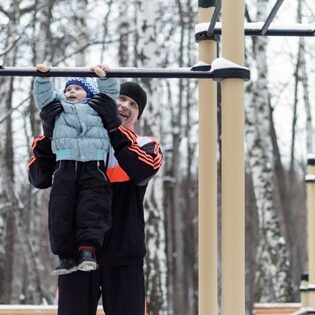Tips to Help Your Children Navigate Change
It’s no secret in the therapy world that requests for services for children increase in the first few months of school. This is a big change for many kids who are transitioning from a summertime of flexible schedules, sleeping in, less rules and structure as well as less expectations to perform. Some do well but for others changes and transitions are difficult and can result in a myriad of challenging behaviors. Examples include a regression to earlier developmental behaviors such as bed wetting, separation anxiety, tantrums, defiance, and outright school refusal.
The transition from the end of summer to the start of the schoolyear is not the only change children have to face. There are common changes during child development such as going from crib to a toddler bed, riding a bike without training wheels, losing baby teeth. Then there are situational changes that can arise such as parental separation, a family move, a best friend changing schools, a new addition to the family. Yes, even happy events can trigger stress for kids and even adults who are sensitive to change.
As a parent I see some commonalities in the way my children react to various changes, such getting nervous the first day of school, or having trouble sleeping right before a big holiday. However, they are each wired differently so that preparing for change requires a slightly different or more involved approach for one more than the other.
Regardless of the type of change and temperament of your child here are six ways you can set them up to thrive:
- Prepare – to the extent possible, sit down with your child and let them know what to expect. With minor change it may just involve a brief statement telling them what the day will look like. For instance, “Molly, we are going to go to the mall today so we can get some summer clothes, then we will have lunch there.” With bigger changes such as a family move, it is appropriate to have a sit-down talk to allow them to ask questions and express their big emotions and for you to reassure them. With ongoing changes, for instance parent visitation, I recommend having visual reminders such as a white board or schedule on a calendar that they can see in addition to a verbal reminder.
- Validate – Let them express their concerns and emotions. Help them name the emotions “you are worried you might miss the bus the first day of school?” Then say “I was nervous too my first days of school, that’s normal to feel that way.” Connect with what they are feeling so that they feel understood. This is an extremely important step before you can redirect to the next step.
- Reassure – After validating their emotions, think of other changes they have been through before and how they survived. For instance, “Remember how you were nervous when you first went to kindergarten? Did you stay nervous all the time? …No, that’s right you started to make friends and got used to things. Just like we get used to all new things.” Be realistic, don’t sugar coat. For instance, “it is going to feel weird and uncomfortable at first living in a new home but it will feel better after a few days.”, or “it does take some time to make really good friends but you did it then and you can make friends again.” Make sure they know if it does feel like a struggle you are there to talk as much as needed.
- Problem-solve – For instance, if your child has to split time between you and another parent, ask them what they think would help them feel better. Would daily phone calls help? Wearing Daddy’s shirt to bed? Taking a picture of their dog? Many times children have their own ideas of what will help, if not you can make suggestions within reason and see what they think. Let them know who to turn to if they have a hard time and who is there to keep things safe and in control.
- Keep routines – as much as possible, keep what you can of your child’s routine and structure the same. For instance, bedtime at 8pm. Church on Sundays at 10am. Kids thrive with structure and routine. This allows them to feel secure and safe. Remind them of the things that are NOT changing.
- Last but not least, give lots of hugs and kisses! This can help kids regulate their emotions!
